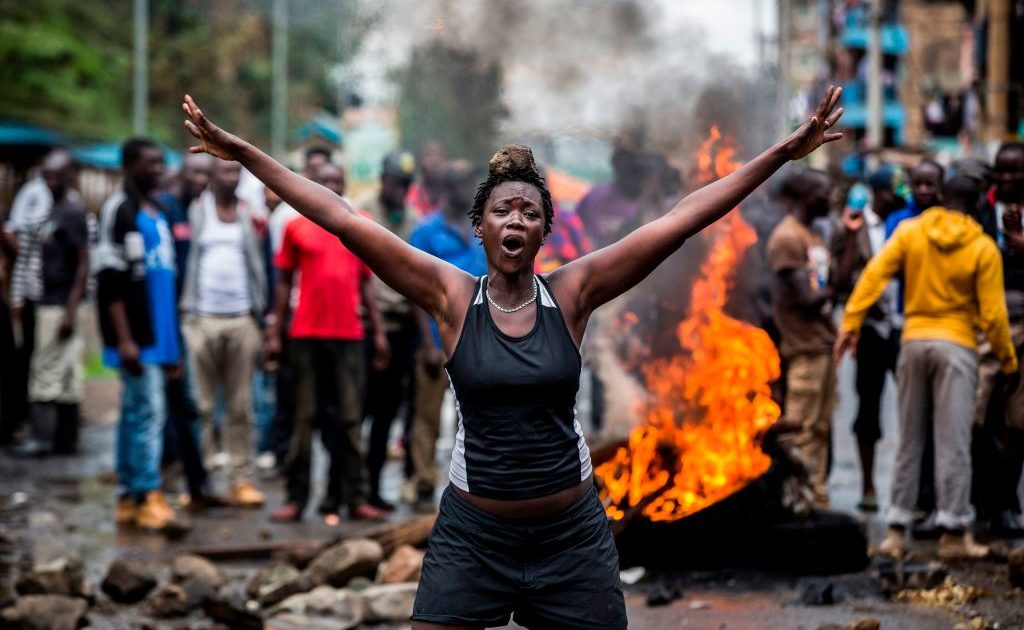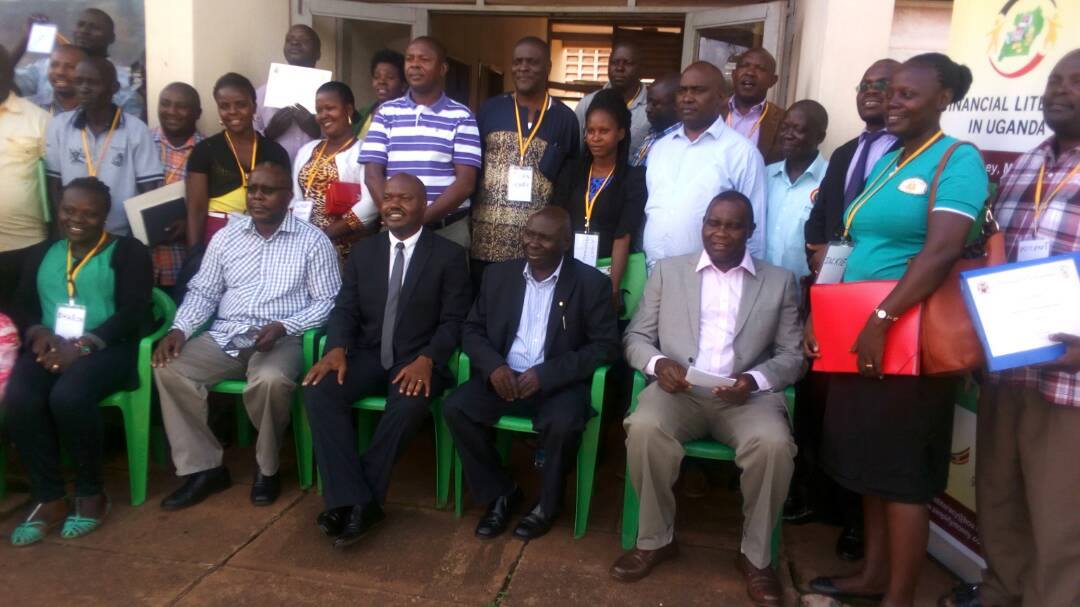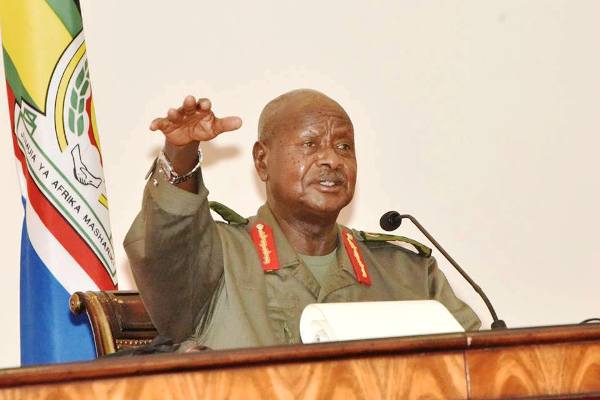Reverend David Mwinamo spent Sunday praying with his congregation for a speedy end to Kenya’s protracted presidential election that’s cast the East African nation into crisis, reports Bloomberg.
Two votes since August have failed to produce consensus on who should lead the East African economic powerhouse of about 47 million people. President Uhuru Kenyatta claims a mandate from this month’s rerun election, while opposition leader Raila Odinga is calling for a national defiance campaign against what he describes as an illegitimate administration.
“People don’t care who wins,” Mwinamo said in an interview at the Gatina Pentecostal Assemblies of God church in Kawangware, a litter-strewn maze of wood and metal shacks in west Nairobi, the capital. “All they want is a united Kenya. Most of the people are suffering — they are skipping meals. There is a lot of poverty and sickness.”
There is no end in sight to the crisis. Kenya has been stuck in political limbo since the Supreme Court took the decision unprecedented in Africa of annulling an Aug. 8 presidential vote after the electoral commission failed to disprove opposition claims of rigging. Odinga boycotted an Oct. 26 rerun and has called for yet another vote within 90 days.
The turmoil has weighed on investors, with the Nairobi Securities Exchange All Share Index dropping 5.5 percent since the election outcome was declared void on Sept. 1 and the government’s international bonds due in 2024 climbing 30 basis points to 6.32 percent. Slum dwellers in Nairobi and the western city of Kisumu, most of whom eke out a living as hawkers or doing part-time jobs, have been hard hit by a slowdown in spending and hiring.
Political Drag
“It is high time we as Kenyans stop following politics,” Wanja Wakoba, 37, said in an interview at her electronics shop in Nairobi. “Politicians have not helped us, they just drag us down. Let them deal with their issues and let us deal with how to carry on with our business.”
About 78 people have died in election-related violence since the initial vote, mostly in clashes between the security forces and opposition supporters of Odinga. Ethnic tensions have also flared between members of Odinga’s Luo community and President Uhuru Kenyatta’s Kikuyu group, raising fears of a repetition of the more widespread violence that ensued after contested 2007 vote and claimed at least 1,100 lives.
Preliminary tallies from the repeat election — which Odinga dismissed as a farce — showed Kenyatta securing a second term with about 97 percent of the vote. The electoral commission is expected on Monday to announce results that will probably be challenged again in court. The turnout in the rerun was less than 50 percent, compared with 79 percent in August, with violent protests forcing the postponement of the ballot in the western Nyanza region.
‘Unlawful Force’
Amnesty International, the London-based advocacy group, said police used “unlawful force” against protesters and bystanders in Kisumu in what it said was “a deliberate campaign to punish inhabitants for continuing to protest.” Leonard Katana, the regional police chief, said by phone on Monday he couldn’t comment because he hasn’t seen the Amnesty report.
Many of Odinga’s supporters in Kisumu, about 264 kilometers (164 miles) west of Nairobi, remain unbowed.
Maurice Okoth, a 34-year-old motorcycle taxi operator, said town residents are determined to get rid of Kenyatta no matter how long it takes.
“We are willing to go on even if it means we suffer for months,” Okoth said. “We want a leader who stands for the truth, and that is Raila.”
Back in Nairobi, bus driver Samuel Karanja expressed frustration with the country’s political leaders.
“Why should an election take all this time?” said Karanja, 28. “Every day there is something new. You get really tired. We just want to go back to our normal lives.”
Endless ‘Politicking’
While Kenyatta has said Kenya can’t remain “in a perpetual state of politicking” and he’s ready to talk to Odinga once the electoral process is complete, the opposition leader has said the only thing he’s willing to discuss is a date for a fresh vote. Odinga pulled out of last week’s contest after the electoral commission rejected his demands to fire staff who ran the botched vote and change some of their procedures.
The Kenya Private Sector Alliance, a business lobby group, estimates the prolonged unrest and political uncertainty has lopped the equivalent of $6.75 billion off the nation’s $71 billion gross domestic product. Kenya is the world’s largest shipper of black tea and a regional hub for companies including General Electric Co. and Coca-Cola Co.
At his church in the Kawangware slum in Nairobi, Reverend Mwinamo said both Kenyatta and Odinga needed to prove their leadership credentials and end the impasse.
“Politics is dividing Kenya,” Mwinamo said. “The politicians should sit down together and talk to one another so we can chart a way forward.”





